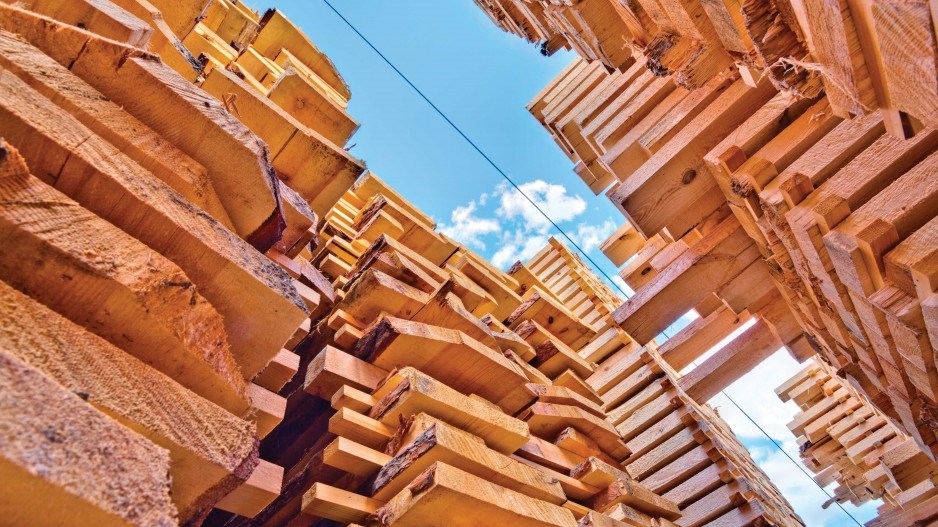The U.S. Commerce Department has set the final countervailing and anti-dumping duties against Canadian softwood lumber exports.
Canadian companies exporting lumber to the U.S. will pay combined duties of about 20% on all lumber exports to the U.S., once they go into effect sometime in December.
The anti-dumping and countervailing duties that were announced earlier this year were preliminary rates. On November 2, the U.S. Department of Commerce sets the final rates.
They do not go into effect, however, until there is a determination of injury, which is expected until around mid-December.
Once that determination is made, the anti dumping and countervailing duties will be applied to lumber exports.
"The U.S. continues to attack its closest friend, neighbour and ally while domestically the U.S. lumber coalition continues to put the interest of its members ahead of what is good for the American economy and American consumers," Bruce Ralston, minister of Jobs, Trade and Technology, said in a press release. "The U.S. lumber industry cannot produce enough lumber to meet U.S. demand. A reliable source of softwood lumber products from B.C. and Canada will benefit the U.S. housing industry and American home-buyers."
Three B.C. companies are identified for specific rates: Canfor Corp. (TSX:CFP), West Fraser Timber (TSX:WFT) and Tolko Industries Ltd. Anti-dumping duties range from 3% to 9%, while countervailing duties range from 3% to 18%.
Canfor and Tolko will pay combined duties of 22% on their exports; West Fraser will pay 24%. All other exporters will pay 21%.
Companies have already been paying the temporary duties. Their impacts have been mitigated by high lumber prices in the U.S. The duties will push lumber prices even higher, so the biggest impact may be on American builders and new homeowners. Also, companies like Canfor and West Fraser also now somewhat hedged against softwood lumber duties because they have been buying up sawmills in the U.S., so the lumber their mills produce there are not subject to the duties.
Whereas Canadian companies sold US$4.9 billion worth of lumber into the U.S. in 2104, in 2016 they sold US$5.6 billion.
Talks continue between Canada and the U.S. to get a softwood lumber agreement that would remove the duties. Those talks are continuing parallel to talks with the U.S. over the renegotiation of the North American Free Trade Agreement.
But the B.C. government is also aggressively trying to push B.c. lumber into Asian markets.
"The dispute with the U.S. highlights the need to grow other markets for B.C. wood products," said B.C. forests minister Doug Donaldson.
Donaldson will lead a trade mission to Japan and China with 35 B.C. forestry executives later this month.




